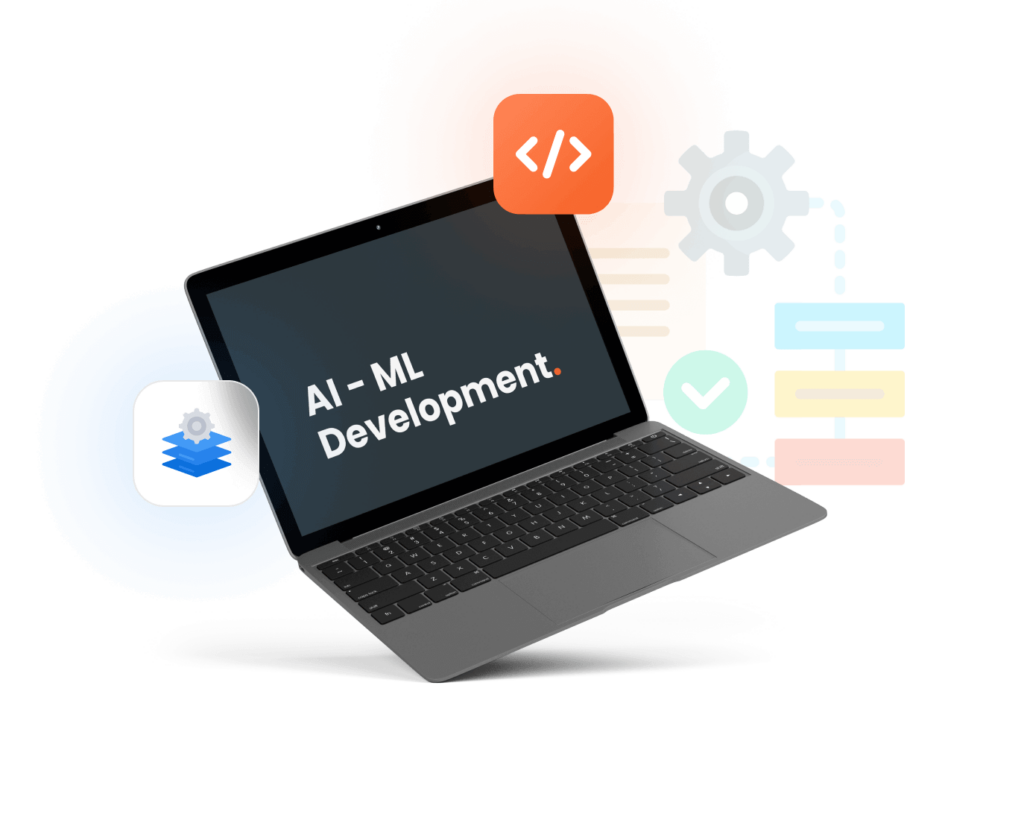> Services> AI software development
AI software development
Harness the Power of AI software development
According to a recent AI Skills report by Pluralsight, 20% of organizations have formally deployed AI-related technologies and tools, and 55% are planning on it soon.
If you have an AI tool in mind, contact SlickDigital. We specialize in cutting-edge AI software development to transform your data into actionable insights. Our expert team delivers customized AI and Machine Learning Solutions to enhance your business operations and drive innovation.

a reflection of our clients’ success.
AI Software Development Services
-
AI Strategy and Consulting
Develop a robust AI strategy with our expert consulting services. Our AI software development consultants help you identify opportunities for AI implementation and create a strategic roadmap to achieve your business goals.
-
Machine Learning Model Development
Build advanced machine learning models tailored to your specific needs with our dedicated software development team. Our development process ensures accurate and efficient models that provide actionable insights.
-
Natural Language Processing (NLP)
Leverage NLP to enhance your applications with sophisticated language understanding capabilities. We develop and integrate NLP solutions for tasks such as sentiment analysis, chatbots, and text summarization.
-
Computer Vision
Implement AI-powered computer vision application integration to enable them to interpret and understand visual data. Our AI experts create custom solutions for image recognition, object detection, and more.
-
AI-Powered Automation
Automate repetitive tasks and improve efficiency with AI-powered automation. Our custom software solutions help you streamline operations and reduce costs.
AI Software Best Practices
Data Governance
Implement robust data governance policies to ensure high-quality, unbiased, and well-labeled training datasets, adhering to data privacy regulations such as GDPR and CCPA.
Model Versioning
Utilize model versioning tools like DVC (Data Version Control) to manage and track changes in AI models and datasets, facilitating reproducibility and rollback capabilities capabilities in AI software development.
Hyperparameter Tuning
Employ automated hyperparameter tuning techniques, such as Bayesian optimization or Grid Search, to fine-tune model performance and achieve optimal accuracy metrics in AI software development.
Feature Engineering
Implement advanced feature engineering practices, including dimensionality reduction (e.g., PCA) and feature scaling (e.g., normalization), to enhance model interpretability and performance.
Ethical AI
Incorporate fairness and bias mitigation techniques, such as adversarial debiasing and fairness-aware algorithms, to ensure ethical AI deployment and avoid discriminatory outcomes in your AI software development projects.


AI Solutions FAQ
Common AI technologies in enterprise application development include machine learning (ML), natural language processing (NLP), computer vision, and robotics. These technologies can be applied in various business scenarios, such as chatbots, predictive analytics, image recognition, and process automation.
AI software developers require skills in machine learning, data science, software engineering, and domain-specific knowledge. Expertise in programming languages (e.g., Python, R), data manipulation, algorithm design, and AI frameworks (e.g., TensorFlow, PyTorch) is essential.


